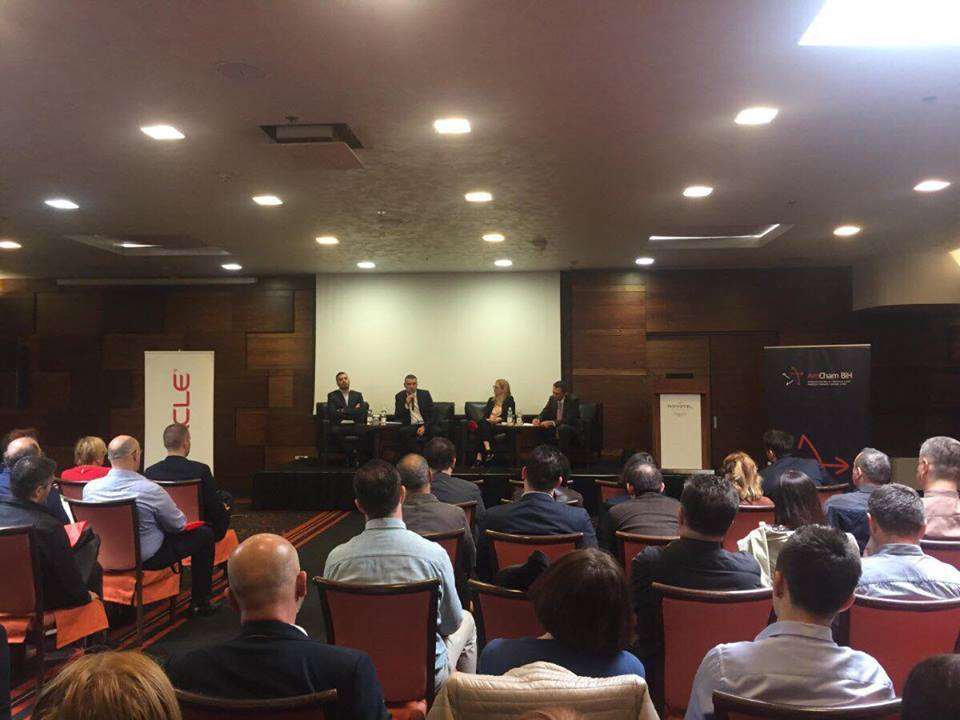Increasing business process efficiency, agility, digital transformation, and cost cutting are just some of the benefits of doing business in the Cloud. In this regard, ORACLE BiH and the AmCham BiH organized a conference titled “The Benefits of doing business in the Cloud for Public Sector” in order to demystify this type of business and to try to answer many questions related to the security of using the Cloud.
The use of the cloud services has increased exponentially over the past 10 years. However, how much is this form of information technology secure, these question where discussed with more than 65 present participants from 30 state and entity institutions and agencies, by domestic experts in the area of data protection and management in the panel discussion entitled “Cloud Business in the Public Sector: Benefits, challenges, regulations and past experience of using Cloud computing in the public sector in BiH”.
The president of the American Chamber of Commerce in BiH Ms. Mirna Milanovic-Lalić, an attorney-at-law was one of the panelists who on the question how does the law treat the Cloud in BiH answered there should not be no explicit ban on using Cloud. “In the banking sector, for example, there is a need for regulatory oversight. It should be limited through the legal framework or relied on it, but not legally prohibit the use of such a business. “ said Ms. Lalić.
When it comes to data, every data is not a personal data. It is necessary to make a distinction as to what data are stored, said the Head of the Department for Inspection and Objections in the Agency for Protection of Personal Data of BiH, Mr. Radovan Kešelj, and also mentioned the Article 17. of the Data Protection Act, which refers to the transfer of personal data or how certain conditions are attributed to the transfer of such data. Namely, there is a legal requirement, purpose, and request from a third party to process or store personal information. When these conditions are fulfilled than we talk about about free movement of data. “It is primarily to assess the security of the vendor that it will only be used for the purpose of storing or processing some specific data, and will then be destroyed,” said the Chief of the Department.
The third panelist was the director of the Agency for Information Society of Republika Srpska, Mr. Srđan Rajčević, who pointed out that the key to Cloud’s use is trust. “The contractual relationship between the personal data bearer and the processor, is the most important thing,” the director said.
The second part of the conference was reserved for the presentation of a so-called hybrid cloud model, where some services are provided through private infrastructure while other services are provided through a public cloud, where IT infrastructure is shared by several organizations for the purpose of a special user community. The conference’s conclusion might be that the hybrid model is a cloud-based business solution for the public sector use, given that the provider plays the most important role in ensuring the effectiveness of the measures taken to protect the information entrusted.












